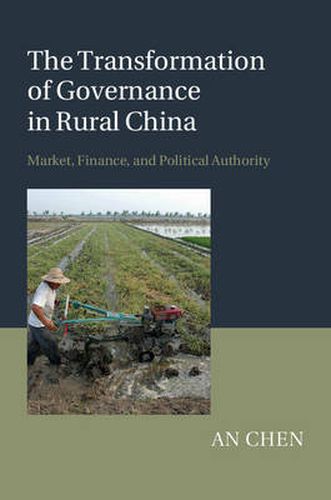Readings Newsletter
Become a Readings Member to make your shopping experience even easier.
Sign in or sign up for free!
You’re not far away from qualifying for FREE standard shipping within Australia
You’ve qualified for FREE standard shipping within Australia
The cart is loading…






The outbreak of organised, violent peasant protests across the Chinese countryside from the late 1990s to the early 2000s has attracted much scholarly interest. In this study, An Chen endeavours to understand from these protests the question of the Chinese government’s control in the countryside and the impact of this violent resistance on China’s rural governance in the context of market liberalisation. Utilising extensive field research and data collected from surveys across rural China, the book provides an in-depth exploration of how rural governance in China has been transformed following two major tax reforms: the tax-for-fee reform of 2002-4, and the abolition of agricultural taxes (AAT) in 2005-6. In a multidimensional analysis which combines approaches from political science, economics, finance and sociology, Chen argues that private economic power has merged with political power in a way that has reshaped village governance in China, threatening to fundamentally change its political structure.
$9.00 standard shipping within Australia
FREE standard shipping within Australia for orders over $100.00
Express & International shipping calculated at checkout
The outbreak of organised, violent peasant protests across the Chinese countryside from the late 1990s to the early 2000s has attracted much scholarly interest. In this study, An Chen endeavours to understand from these protests the question of the Chinese government’s control in the countryside and the impact of this violent resistance on China’s rural governance in the context of market liberalisation. Utilising extensive field research and data collected from surveys across rural China, the book provides an in-depth exploration of how rural governance in China has been transformed following two major tax reforms: the tax-for-fee reform of 2002-4, and the abolition of agricultural taxes (AAT) in 2005-6. In a multidimensional analysis which combines approaches from political science, economics, finance and sociology, Chen argues that private economic power has merged with political power in a way that has reshaped village governance in China, threatening to fundamentally change its political structure.